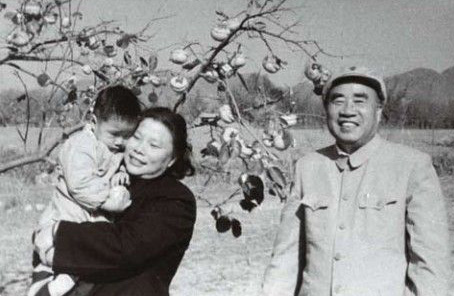(Ecns.cn)--"I grew up under the rigorous rules imposed by my grandfather," recalls Zhu Heping, Major General of the People's Liberation Army Air Force, about his life with grandfather Zhu De, the illustrious militarist, politician, and early pioneer in the revolutionary forces that formed the Communist Party of China.
In an interview with reporters from Global People a couple of days ago, Zhu quipped that 'being red and expert' is his family's style. "The red refers to making the interests of our country and people the top priority; while the expert part means we have high expectations of our work or profession," he explained.
These commitments were the legacy of CPC family founder Zhu De, who as a commander of the Red Army had experienced various hardships during the massive military retreat of the Communist Party to evade the advancing Kuomintang army, known as the Long March (1934-1935). The famous strategy included climbing snow-covered mountains and passing through thick marshes, but he never gave up motivating and helping his troops achieve their victory.
After the People's Republic of China was founded in 1949, Zhu Heping continued, Zhu De devoted himself to researching the appropriate developmental road for the country, and produced the theoretical framework of Chinese-style socialism China adopted.
Born in 1952, Zhu Heping was left with his grandparents at the tender age of eight months and spent nearly 40 years with the couple, but instead of receiving the preferential treatment a "princling"his high status might expect, he had a strict upbringing and began his career as a common worker.
Zhu Heping still keeps a notebook on life with his grandfather which records the school performances he, and his brothers and sisters gave, his test scores, and even the parent-teacher meetings. Zhu De was determined the children would fit into ordinary society, and took them round to factories and villages to learn from the workers and farmers themselves.
"You should enter this school in the future," Zhu De told the kids when they were visiting the Chinese People's Liberation Army Military Engineering Institute, "since wars will now be competitions between scientists; without modern technology, how can one win any war?".
The Cultural Revolution (1966-1976),prevented Zhu Heping from going to college however, and he took a job in a local factory instead. Yet, the young man dreamed of being a good solider like his grandfather, and as soon as he could, he joined the army.
Though Zhu De frowned on his grandson for quitting his job after such a short period, his grandparents gave him a whole set of high school textbooks once he was inducted.


















